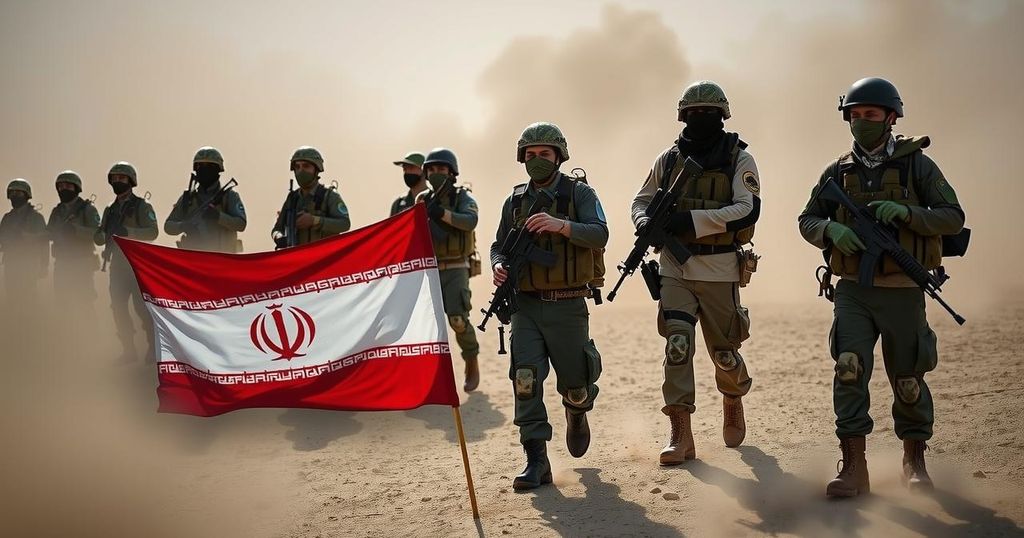Iraqi Militias Shift Focus from Israel to Iran amidst Syrian Developments

The Popular Mobilization Units in Iraq reaffirm their loyalty to Iran amidst a shift in focus towards Syria. While commemorating the defeat of ISIS, PMU leader Faleh Al-Fayyad expressed allegiance to Iranian figures like Soleimani. As Iranian-backed militias adjust their strategies, Iraqi political leaders from various factions are closely monitoring the situation, emphasizing the intricate balance of power in the region.
Iraqi militia groups, particularly the Popular Mobilization Units (PMU), continue to express their loyalty to Iran while shifting their focus away from Israel towards developments in Syria. Faleh Al-Fayyad, the head of the PMU, reaffirmed this allegiance during a ceremony in Diyala province commemorating the defeat of ISIS, stating that the PMU remains committed to its Iranian allies, especially in honor of the late General Qassem Soleimani, who played a significant role in combating Daesh. Tuesday’s meeting also highlighted Al-Fayyad’s acknowledgment of Abu Madhi al-Muhandis, another key figure associated with the PMU, who was killed alongside Soleimani in a 2020 US airstrike.
As Iranian-backed militias recalibrate their strategies, they appear less focused on Israeli targets and are now prioritizing the evolving political landscape in Syria. Recent discussions involving Syrian officials and an Iraqi delegation suggest a concerning openness to influence from Syria upon Iraqi affairs. Hadi al-Amiri, leader of the Badr Organization within the PMU, articulated a cautious stance, asserting, “we are not afraid of the new Syria,” while expressing apprehensions regarding potential shifts that may affect Iraq’s stability.
Meanwhile, Sunni leaders in Iraq perceive the change in Syria’s leadership as potentially beneficial, which could augment the political landscape for Sunnis within Iraq. In the autonomous Kurdistan region, political players, particularly those associated with the Kurdish Democratic Party (KDP), are closely monitoring these developments, hoping for a cooperative government structure involving various Kurdish factions in eastern Syria. This evolving dynamic underscores the intricate interplay of regional politics and its implications for Iraq’s governance and security.
The Popular Mobilization Units (PMU) were formed in 2014 to combat the rise of ISIS in Iraq, and they have often been linked to Iranian interests. The shifting allegiance towards Iran signifies a continued regional alliance amid changing geopolitical landscapes in the Middle East. The PMU’s focus on Syria indicates a strategic adjustment in response to developments in the region, reflecting broader power dynamics and potential implications for Iraqi sovereignty and stability. Furthermore, the reactions from Sunni leaders and Kurdish representatives illustrate the complexities inherent in Iraq’s multi-ethnic and multi-religious society, as they navigate the impact of external political influences from neighboring countries.
In summary, the Iraqi Popular Mobilization Units have reaffirmed their loyalty to Iran while recalibrating their military focuses towards Syria. The implications of these developments are profound, as they affect the political landscape of Iraq and its regional relationships. Furthermore, reactions from various political factions within Iraq highlight the intricate relationships at play, as local leaders strategize to adapt to the evolving scenario, seeking to influence potential shifts in governance to their advantage.
Original Source: www.jpost.com








